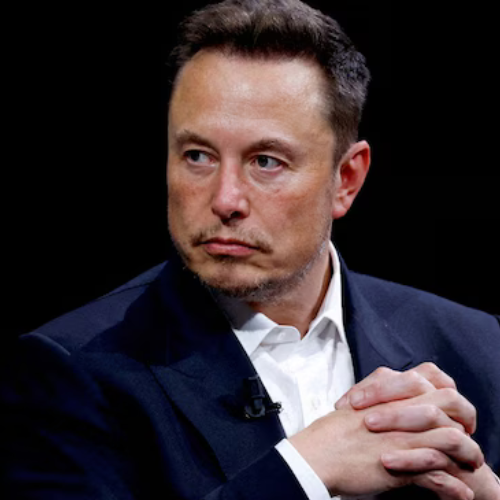A federal judge in San Francisco turned down a request from the U.S. Securities and Exchange Commission (SEC) to penalize billionaire Elon Musk. The SEC had accused Musk of defying a court order by skipping a scheduled testimony on September 10. Musk, known for his roles as CEO of Tesla and SpaceX, is being investigated for possible delays in disclosing his purchase of Twitter shares in 2022, a move that may have violated securities laws.
Instead of attending the court-ordered testimony, Elon Musk went to Florida’s Cape Canaveral to oversee the launch of SpaceX’s Polaris Dawn mission. This left the SEC frustrated, arguing that Musk was ignoring the court’s authority. However, Musk eventually testified on October 3 and agreed to cover the SEC’s $2,923 in travel costs for rescheduling the session.
The SEC had hoped to impose tougher sanctions on Elon Musk, claiming that merely paying travel costs wouldn’t discourage others—especially wealthy individuals like Musk—from skipping court orders. The agency even hinted that Musk’s immense wealth, reported at $321.7 billion by Forbes, gave him an unfair advantage to evade accountability.
Judge Corley’s Ruling: Why No Sanctions Were Imposed
Judge Jacqueline Scott Corley, who presided over the case, ruled that the SEC’s request to sanction Elon Musk was “moot.” She pointed out that since Musk ultimately complied with the court order by testifying on October 3, no further penalties were necessary. In her decision, Corley explained that there was no longer any meaningful relief that the court could offer because Musk had already resolved the issue.
Elon Musk’s China Business Ties Spark Concerns Over U.S. Security
Although the SEC believed that leniency in this situation could set a dangerous precedent, the judge did not agree that sanctions were warranted under the circumstances. By paying the SEC’s travel costs and showing up for the later testimony, Musk had technically fulfilled his obligations, making further punishment unnecessary in the court’s eyes.
The Bigger Picture: SEC vs. Elon Musk
This case is part of a broader investigation into Elon Musk’s actions leading up to his $44 billion acquisition of Twitter (now rebranded as X). The SEC is examining whether Musk waited too long to disclose that he had started buying Twitter shares in early 2022. According to U.S. law, investors must inform regulators when they acquire more than 5% of a company’s stock. However, critics allege that Musk delayed this announcement for at least 10 days, possibly to buy shares at a lower price.
When the public eventually learned of Elon Musk’s 9.2% stake in Twitter, the company’s stock surged. Soon after, Musk made an offer to buy Twitter outright. Some investors and analysts believe his delayed disclosure gave him an unfair advantage in the market, allowing him to save millions of dollars. Musk, for his part, has admitted to misunderstanding SEC disclosure rules, calling the delay a “mistake” during prior statements in July 2023.
This isn’t the first time Elon Musk has clashed with the SEC. Back in 2018, the agency sued him over a controversial tweet where he claimed to have “funding secured” to take Tesla private. Musk settled that case by paying a $20 million fine, stepping down as Tesla’s chairman, and agreeing to let company lawyers pre-approve certain tweets about Tesla’s business.
The most recent ruling may be a small victory for Musk, but it also highlights the ongoing tension between the SEC and the world’s richest man. While Musk’s businesses—Tesla, SpaceX, and others—continue to dominate industries, his unconventional approach and brushes with regulators keep making headlines. This particular case, filed in the U.S. District Court for Northern California under case number 23-mc-80253, serves as another chapter in Musk’s complex legal history with the SEC.
For now, Musk seems to have dodged another round of penalties, but the investigation into his Twitter dealings remains open.


